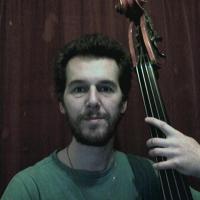訊息: 28
語言: English
kinghajj (顯示個人資料) 2007年10月23日下午11:18:14
Li estas inteligenta.
Li inteligentas.
For sentences like that, dropping "esti" could ease conversations, at least for intermediate speakers of Esperanto. What are your thoughts on it?
RiotNrrd (顯示個人資料) 2007年10月24日上午1:08:30
kinghajj:How acceptable is it to turn an adjective into a verb?It is perfectly acceptable, and is done all the time.
quickstopme (顯示個人資料) 2007年10月25日上午5:15:00
kinghajj:How acceptable is it to turn an adjective into a verb? For example:Hmm how would that translate if that is a verb?
Li estas inteligenta.
Li inteligentas.
For sentences like that, dropping "esti" could ease conversations, at least for intermediate speakers of Esperanto. What are your thoughts on it?
(sorry, I'm a begninner)
lagwagon555 (顯示個人資料) 2007年10月25日上午9:02:04
Mi ĝojas = I am happy
So hes asking if
Li inteligentas = He is intelligent
I am also interested to find the answer to the original question. I dont know where to draw the line either.
awake (顯示個人資料) 2007年10月26日上午1:10:33
You can ad the verb indicators -as, is, os, us, u, and i, to any root word where it makes sense
Consider Li kuras = he runs, or he is running.
Li koleriĝas = He is becoming angry
Li inteligentas = He is intelligent
You could also say things like
Inteligentu! ne fumu! = Be Smart! Don't smoke!
lagwagon555:Apparently in esperanto, you can use verbs for some of the things english uses 'am (adjective)'.
Mi ĝojas = I am happy
So hes asking if
Li inteligentas = He is intelligent
I am also interested to find the answer to the original question. I dont know where to draw the line either.
RiotNrrd (顯示個人資料) 2007年10月26日上午6:10:21
It's true!
Ĝi estas vera!
Ĝi veras!
Veras!
BasCostBudde (顯示個人資料) 2007年10月26日上午8:47:02
Ĝi veras! => (the thing you just said) is true
Veras! => "there is truth", possibly followed by an explicative clause
"It rains" is the common example of an artificial subject, hence translates into "pluvas".
mnlg (顯示個人資料) 2007年10月26日上午9:45:23
BasCostBudde:Ĝi veras! => (the thing you just said) is true"tio veras" is perhaps much better for this meaning.
I would use "ĝi veras" to mean more or less "it really exists", but on second thought perhaps I wouldn't.
Veras! => "there is truth", possibly followed by an explicative clauseWell, keep in mind that when you say something like "veras, ke lia nomo estas Jozefo" (it is true that his name is Joseph), the subject is "ke lia nomo estas Jozefo" (subjective sub-sentence introced by "ke"), so there is a subject after all.
RiotNrrd (顯示個人資料) 2007年10月26日下午3:11:32
BasCostBudde:"It rains" is the common example of an artificial subject, hence translates into "pluvas".It seems to me that one could make the case that in the sentence "It is raining", "it" could be considered to refer to a real subject because "it" refers (or could refer) to that big cloud overhead.
"The big cloud right up above us is raining."
"It is raining."
So, I think there might be a bit of a grey area here.
mnlg (顯示個人資料) 2007年10月26日下午3:51:22
RiotNrrd:So, I think there might be a bit of a grey area here.All that's grey is the raining sky

No, I think that "pluvas" is the Esperanto version of (neo)latin impersonal verbs. You can say, for instance, "ventas kaj pluvas", or "sunas ekstere", and, as far as I know, that would be perfectly accepted.
If you really want an explanation, though, just think of "pluvas" as "estas pluvo", that is literally, "there is rain", just as in "estas libro sur la tablo", there's a book on the table.



